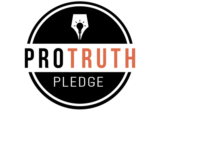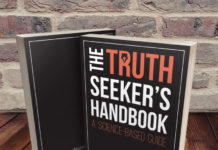Wait, what? Science can’t be used to answer life’s big questions, such as finding life meaning and purpose. That’s what religion and traditional culture are for, right? Those are the only things that can fill the emptiness deep in the pit of our stomach that comes from a lack of a personal sense of meaning and purpose.
Or so goes the mainstream, traditional opinion. That view is way behind the times! There’s been wave of recent research in psychology, cognitive neuroscience, and other disciplines on finding life meaning and purpose. So far, science can’t give a definitive answer to the question of “what is the meaning of life” for all people and at all times. However, we can certainly use research findings to help us find a personal sense of meaning and purpose, and answer the question “what is the meaning of life for you?”
This sense of life purpose is not a trivial matter. Recent studies show that people who feel that their life has meaning experience a substantially higher sense of mental and physical well-being and health.
To help you gain these health and wellbeing benefits, I developed a workshop on how to find meaning and purpose in life based on my research, and that of others. This is the video embedded in the top of the post. It shares science-based strategies and gives exercises that you can do to help you find greater meaning and purpose in life from a science-based perspective.
Those who attended this workshop found these techniques very helpful. For example, Ryan Mulholand, a 21-year-old college student, stated that when he first came to the workshop, “my original highest order goals revolved largely around living a comfortable life.” Yet in the course of the workshop, he realized that “the issue with this mindset was that it was too shallow and self-centered for me to be content with for long.” As a result of the workshop, he stated that “I reached several conclusions in what I desired most out of life. I figured out that I wanted to build a life that was centered around bettering myself and other people. I wanted to be someone who constantly was learning and growing, while at the same time, being a teacher of sorts to help those around me… With these thoughts in mind, I promptly changed my major and have since then, begun to work toward making these wants into realities.” His full statement describing his experience is available here.
Others shared similar benefits. One person stated in an anonymous feedback form that s/he gained “a better understanding of what it means to search for meaning, with the research basis especially greatly contributing to my comprehension.” A second noted that after attending the workshop, “I have a much better sense of how to consider questions of meaning and purpose.” A third wrote that “from attending this workshop, I have gained the basic knowledge for greater self-exploration.”
Several chose to give videotaped interviews about their experience in a workshop on meaning and purpose. They kindly permitted me to include their names and links to their videotaped feedback, for example Ryan Mulholand, Brenda Penn, Karen Thimmes, and Jake Calaway. Their descriptions of their experience testifies to how much they benefited from engaging with the research-based strategies to finding a deeper sense of meaning and purpose in life.
So watch out the video above, and stop the video and do the exercises described. If you find the video helpful, but want more, check out the free online course I developed to enable you to gain a deeper sense of life purpose. Here is the link to the free online course. Let me know your thoughts about the video and workshop, and how it can be improved to help you have a better experience. Please share it with others whom you think would benefit from a deeper sense of meaning and purpose in life.
P.S. For additional resources, check out this workbook with exercises on finding meaning and purpose using science-based strategies; this free science-based web app to evaluate your current sense of meaning and purpose; this free online class on finding meaning and purpose using science; and the wide variety of other resources on meaning and purpose available at Intentional Insights.




